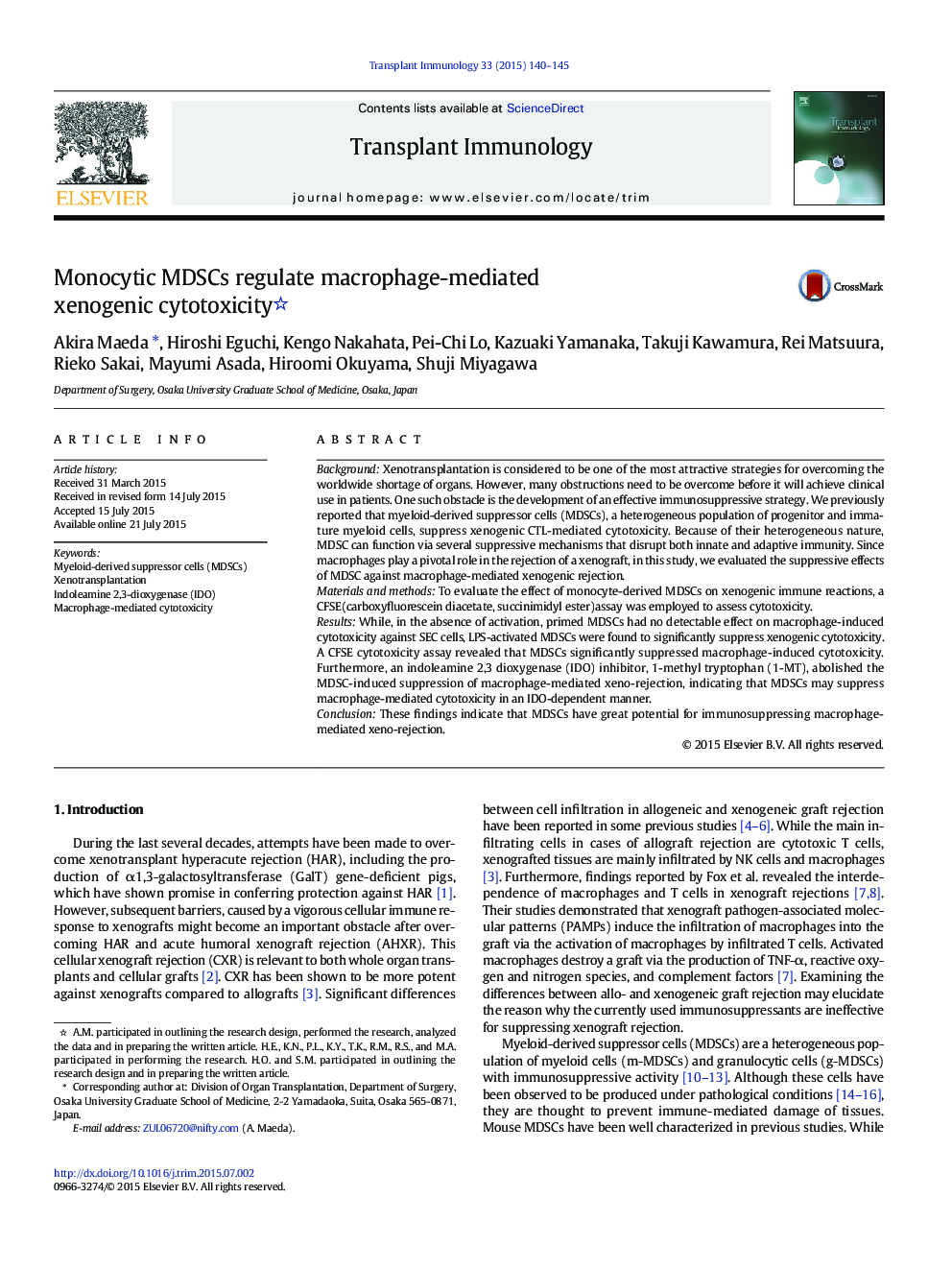| Article ID | Journal | Published Year | Pages | File Type |
|---|---|---|---|---|
| 3392031 | Transplant Immunology | 2015 | 6 Pages |
•MDSCs suppress the xenocytotoxicity by macrophages.•MDSC-induced suppression of cytotoxicity is contact dependent and IDO dependent.•MDSCs suppress NO production by macrophages.•MDSCs induce the decrease in the iNOS/Arg-1 ratio in macrophages.
BackgroundXenotransplantation is considered to be one of the most attractive strategies for overcoming the worldwide shortage of organs. However, many obstructions need to be overcome before it will achieve clinical use in patients. One such obstacle is the development of an effective immunosuppressive strategy. We previously reported that myeloid-derived suppressor cells (MDSCs), a heterogeneous population of progenitor and immature myeloid cells, suppress xenogenic CTL-mediated cytotoxicity. Because of their heterogeneous nature, MDSC can function via several suppressive mechanisms that disrupt both innate and adaptive immunity. Since macrophages play a pivotal role in the rejection of a xenograft, in this study, we evaluated the suppressive effects of MDSC against macrophage-mediated xenogenic rejection.Materials and methodsTo evaluate the effect of monocyte-derived MDSCs on xenogenic immune reactions, a CFSE(carboxyfluorescein diacetate, succinimidyl ester)assay was employed to assess cytotoxicity.ResultsWhile, in the absence of activation, primed MDSCs had no detectable effect on macrophage-induced cytotoxicity against SEC cells, LPS-activated MDSCs were found to significantly suppress xenogenic cytotoxicity. A CFSE cytotoxicity assay revealed that MDSCs significantly suppressed macrophage-induced cytotoxicity. Furthermore, an indoleamine 2,3 dioxygenase (IDO) inhibitor, 1-methyl tryptophan (1-MT), abolished the MDSC-induced suppression of macrophage-mediated xeno-rejection, indicating that MDSCs may suppress macrophage-mediated cytotoxicity in an IDO-dependent manner.ConclusionThese findings indicate that MDSCs have great potential for immunosuppressing macrophage-mediated xeno-rejection.
